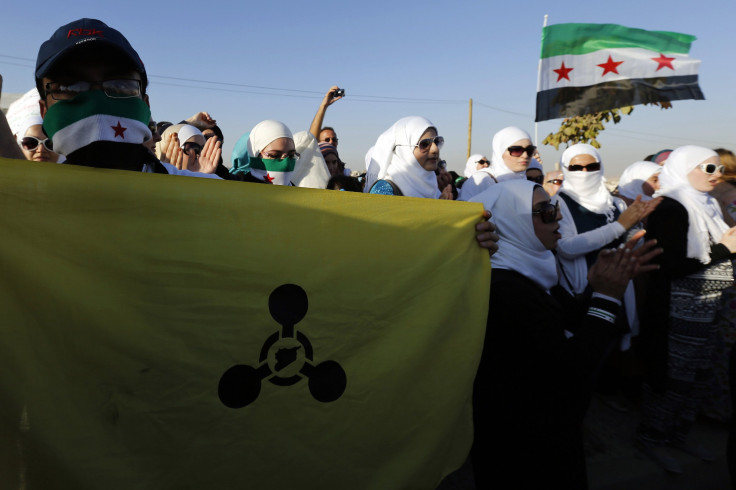Does ISIS Have Chemical Weapons? A Year After Syrian Chemical Attack, Some Weapons Still Undeclared

On the anniversary of Syria's brutal gas attack on its own people, the U.S. State Department said that a “number of critical issues remain unresolved” about Bashar al-Assad's chemical weapons. The possibility of unaccounted chemical weapons in Syria raises the concern of whether the Islamic State may someday have access to chemical agents, given their recent gains in both Iraq and Syria.
Last year's attack killed nearly a thousand people. There have been incidents of chlorine warfare in Syria since then; chlorine is not banned under the Chemical Weapons Convention and Assad has not agreed to cede those stockpiles. While chlorine is almost certainly still in Syria, it’s unlikely that the Islamic State, also known as the Islamic State of Iraq and Syria (ISIS), has got their hands on it, according to Middle East experts.
If Assad is still harboring chemical agents, they would be both closely guarded and also stored in locations that ISIS has not seized, such as Damascus, said Jacob Stokes, a research analyst at the Center for New American Security.
“Countries tend to hoard these things because they think they’re effective on the battlefield,” said Ivan Eland, a senior fellow and director of the Center on Peace & Liberty at The Independent Institute. “There’s also the question of whether or not ISIS would be able to use these if they got them in the first place, unless the Syrians showed them how to do it. I suppose you can’t rule that out.”
The possibility of Assad simply handing chemical agents to ISIS militants is also unlikely. While there has been some collusion on the ground between the Islamic State and regime forces, most of it was limited to staying out of each other's way. In recent months, the Islamic State turned its efforts to eradicating less extreme rebel groups in Syria instead of Assad’s forces. Assad has largely ignored the militant group’s advances. But, said Stokes, the Assad regime would not want the militants to have chemical weapons: although Damascus might be “able to ignore ISIS in the short term, eventually they’re going to have to fight them.”
And while ISIS may not have chemical agents now, they have every reason to try to obtain them. “I don’t think ISIS would turn down any military capability that would allow them to be more powerful,” Stokes said. “They’re going to be increasingly facing military resistance as regional powers start to see them as the number one threat in the region.”
Along with Assad's chlorine arsenal, there have been reports of rebel factions on the ground seizing chlorine stores, and even using it to carry out attacks. While no reports specifically blame ISIS, the fragmented situation in Syria makes it hard to keep track of which rebel groups have access to which resources. ISIS’s recruitment campaign has led to many groups pledging allegiance to the Islamic State, bringing their weapons with them. At times, individual members will defect to ISIS; many are forced to offer some kind of token of loyalty. (That appears to be how journalist James Foley came into the hands of his ISIS killers.)
A year ago, some of the most disturbing images from Syria were of the bodies of the thousand people who died in a single chemical attack. The U.S. said it “destroyed the most dangerous chemicals in the regime’s declared stockpiles.” But civilians in Syria -- and beyond -- now face double the danger: the regime forces and the growing brutality of ISIS.
© Copyright IBTimes 2024. All rights reserved.






















